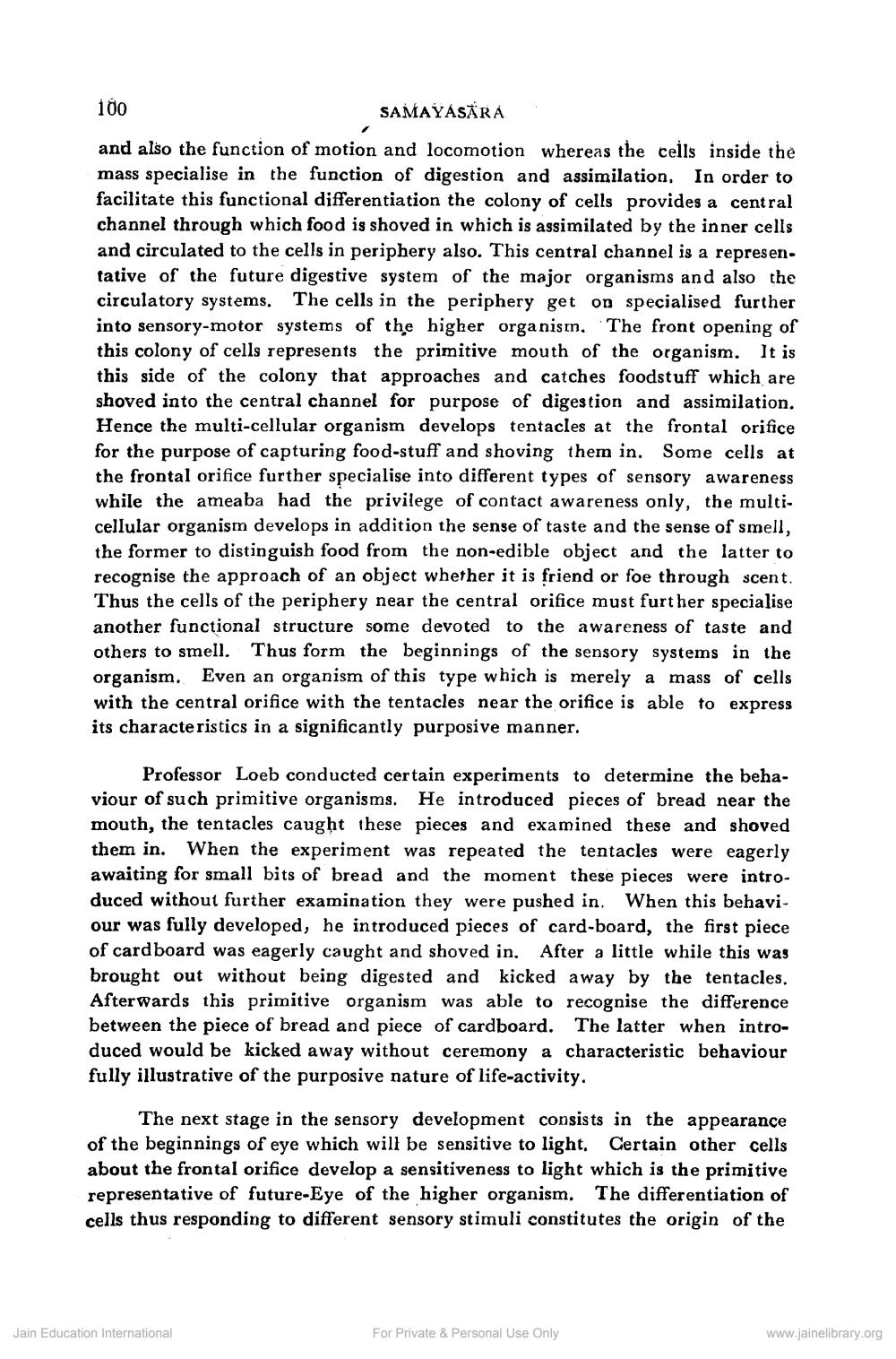________________
100
and also the function of motion and locomotion whereas the cells inside the mass specialise in the function of digestion and assimilation. In order to facilitate this functional differentiation the colony of cells provides a central channel through which food is shoved in which is assimilated by the inner cells and circulated to the cells in periphery also. This central channel is a representative of the future digestive system of the major organisms and also the circulatory systems. The cells in the periphery get on specialised further into sensory-motor systems of the higher organism. The front opening of this colony of cells represents the primitive mouth of the organism. It is this side of the colony that approaches and catches foodstuff which are shoved into the central channel for purpose of digestion and assimilation. Hence the multi-cellular organism develops tentacles at the frontal orifice for the purpose of capturing food-stuff and shoving them in. Some cells at the frontal orifice further specialise into different types of sensory awareness while the ameaba had the privilege of contact awareness only, the multicellular organism develops in addition the sense of taste and the sense of smell, the former to distinguish food from the non-edible object and the latter to recognise the approach of an object whether it is friend or foe through scent. Thus the cells of the periphery near the central orifice must further specialise another functional structure some devoted to the awareness of taste and others to smell. Thus form the beginnings of the sensory systems in the organism. Even an organism of this type which is merely a mass of cells with the central orifice with the tentacles near the orifice is able to express its characteristics in a significantly purposive manner.
SAMAYASARA
Professor Loeb conducted certain experiments to determine the behaviour of such primitive organisms. He introduced pieces of bread near the mouth, the tentacles caught these pieces and examined these and shoved them in. When the experiment was repeated the tentacles were eagerly awaiting for small bits of bread and the moment these pieces were introduced without further examination they were pushed in. When this behaviour was fully developed, he introduced pieces of card-board, the first piece of cardboard was eagerly caught and shoved in. After a little while this was brought out without being digested and kicked away by the tentacles. Afterwards this primitive organism was able to recognise the difference between the piece of bread and piece of cardboard. The latter when introduced would be kicked away without ceremony a characteristic behaviour fully illustrative of the purposive nature of life-activity.
The next stage in the sensory development consists in the appearance of the beginnings of eye which will be sensitive to light. Certain other cells about the frontal orifice develop a sensitiveness to light which is the primitive representative of future-Eye of the higher organism. The differentiation of cells thus responding to different sensory stimuli constitutes the origin of the
Jain Education International
For Private & Personal Use Only
www.jainelibrary.org




